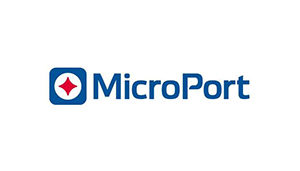 MicroPort Scientific’s Firehawk rapamycin target eluting coronary stent performed comparably to Abbott’s Xience stent family in a study just published in The Lancet.
MicroPort Scientific’s Firehawk rapamycin target eluting coronary stent performed comparably to Abbott’s Xience stent family in a study just published in The Lancet.
The TARGET AC multi-center, randomized controlled trial enrolled 1,653 patients at 21 clinical study sites in Europe. Firehawk met the trial’s non-inferiority primary endpoint of target lesion failure rate at 12 months of 6.1% versus 5.9% for the Xience stents.
Firehawk and Xience stents showed no statistically significant differences in target lesion failure components. Cardiac death, myocardial infarction related to the target vessel, ischemia-driven target lesion revascularization and stent thrombosis rates were all comparable, the study found. The TLR rate was lower in the Firehawk stent group and the stent thrombosis rate was the same for both Firehawk and Xience family stents.
“TARGET AC confirms that the Firehawk, a low-dose, sirolimus-eluting biodegradable polymer DES, is safe and effective across a broad spectrum of patient and lesion complexity,” said Alexandra Lansky, a Yale University School of Medicine professor and lead author, according to a prepared statement.
Firehawk is MicroPort’s third-generation drug-eluting stent developed to treat patients with coronary artery disease. The drug and biodegradable polymer are eluted from microgrooves laser-cut on the abluminal side of the stent struts. The total surface area of all the grooves is less than 5% of the total surface area of the stent struts while 95% of the stent surface area remains bare metal, according to MicroPort. This target eluting design allows Firehawk to achieve the same level of clinical efficacy as the “best-in-class” drug-eluting stents, but with the lowest drug dosage to prevent restenosis, the company said.
Firehawk also overcomes the late thrombosis event weakness inherent in drug-eluting stents while maintaining a long-term safety profile commensurate with bare metal stents. Mortality from late thrombosis can be as high as 50%.
Publication of the study in The Lancet is a “landmark achievement” for the study of a drug-eluting stent manufactured in China, said Dr. Zhaohua Chang, founder, chairman & CEO of MicroPort.
“With the Firehawk clinical results having been validated in such a rigorous peer-reviewed publication, clinicians and patients should have every confidence in the safety and efficacy of Firehawk to treat patients with coronary artery disease,” he added.
MicroPort plans to begin another study of short dual antiplatelet therapy study to assess the effectiveness and safety of shortening this therapy for patients who have had Firehawk implanted. The company expects to complete enrollment in the new study by the first half of 2020.
